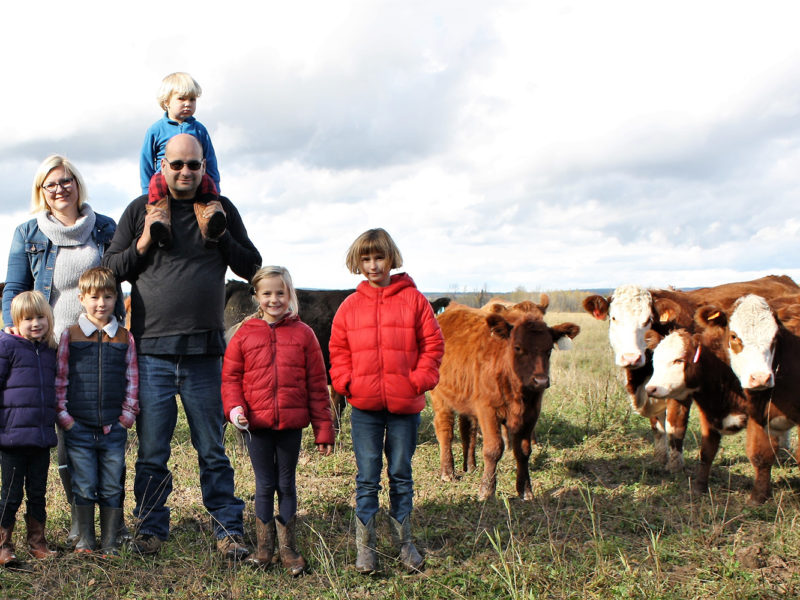FORT STEELE – The province’s showcase of local food producers has been on hold during the pandemic, but the first two Every Chef Needs a Farmer, Every Farmer Needs a Chef events continue to repay attendees.
Held in 2018 and 2019, the conferences attracted a total of 500 farmers, chefs and food service professionals from across the province to Vancouver for presentations, panel discussions and networking, including Tyler and Sacha McNaughton of Cutter Ranch in Fort Steele.
The couple chose to focus on direct-to-consumer sales because it was a way to ensure the quality of the product reaching consumers, and consumer connections with ranching.
“We wanted to have an outdoor-based operation … to start this first-generation farm business and get consumers back in contact with producers and know how their food is produced,” says Sacha.
In the beginning, the McNaughtons had a simple marketing strategy – leave no stone unturned. They reached out to friends, family and their direct network to generate sales. But they now supply restaurants and niche grocery stores with their products, too.
“We took the small-scale model and built it into something that has scalability and can service more consumers on a year-round basis,” says Sacha.
“As we built up the sheep, beef and pork herds, we could start servicing larger customers. … It’s old-time selling. You knock on doors, make calls and network however you can,” says Tyler.
They continue to develop new markets. Every Chef Needs a Farmer helps facilitate this process by bringing members of the entire food supply chain together. Attending the 2019 event helped the McNaughtons make valuable connections.
“We had never experienced a tradeshow like that before, with buyers and sellers in one room. We have been to industrial events that were … targeted towards higher-level industry (stakeholders) and we didn’t really fit in,” says Tyler.
Every Chef Needs a Farmer was welcoming and applicable to their business.
“We need more (collaboration of stakeholders) in this province. You get a great sense of satisfaction from growing your own products, but you also need a platform to sell them on and the industry to back them up,” Tyler explains. “To have that event for our industry, in concert with the larger-scale industry events, it is the perfect complement to further food production in this province.”
Worthwhile networking
Matt L’Heureux of Aurora View Farms Ltd. in Prince George, agrees that local support and networking are impactful.
He and his family manage 1,200 acres of certified organic land and sell organic beef. In 2018, Matt and his wife Liz gathered ideas from Every Chef Needs a Farmer and made business connections. The following year, the couple presented on the success of those connections.
As a farmer, building relationships with restaurant owners for meat sales is challenging because chefs want one cut, L’Heureux says.
“That is a hard go for us,” he says. “(But) I think people are a bit more concerned about the food supply chain since the pandemic started and there definitely is a push to eat locally. Buy BC and Every Chef Needs a Farmer help promote that (movement).”
While last year’s event was cancelled due to COVID-19 safety protocols, an event this year is possible.
“We won’t be hosting an in-person ECNF event but are currently looking into how we could host a similar and perhaps smaller event virtually,” says Andrea Hoerger, senior manager of domestic market development with the BC Ministry of Agriculture, Food and Fisheries.
The province is also planning its annual Buy BC: Eat Drink Local campaign this summer in partnership with the BC Restaurant and Food Services Association.


 Flight ban strands workers
Flight ban strands workers